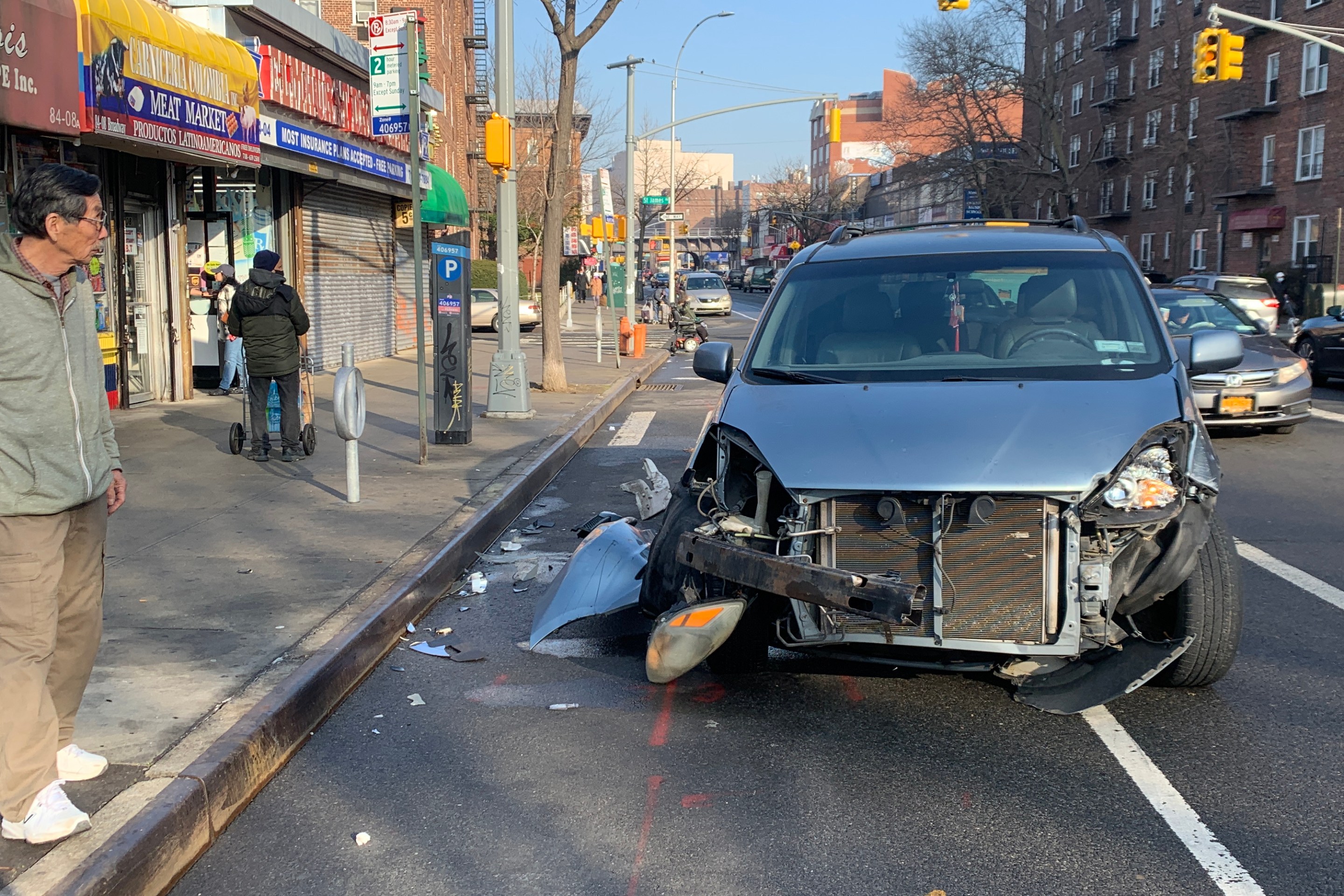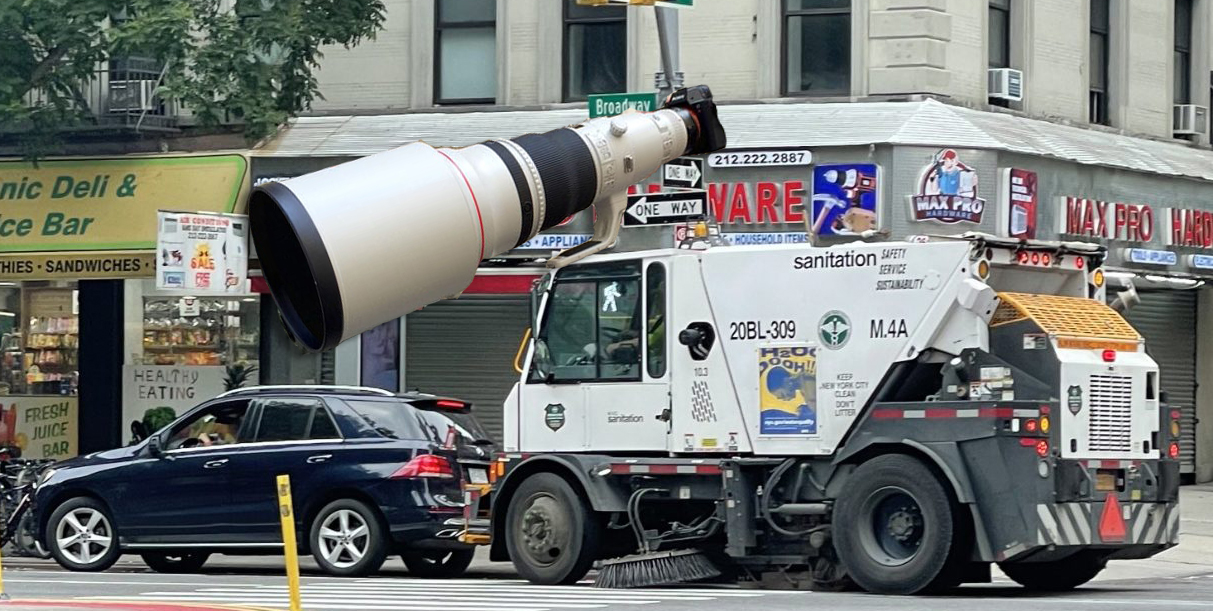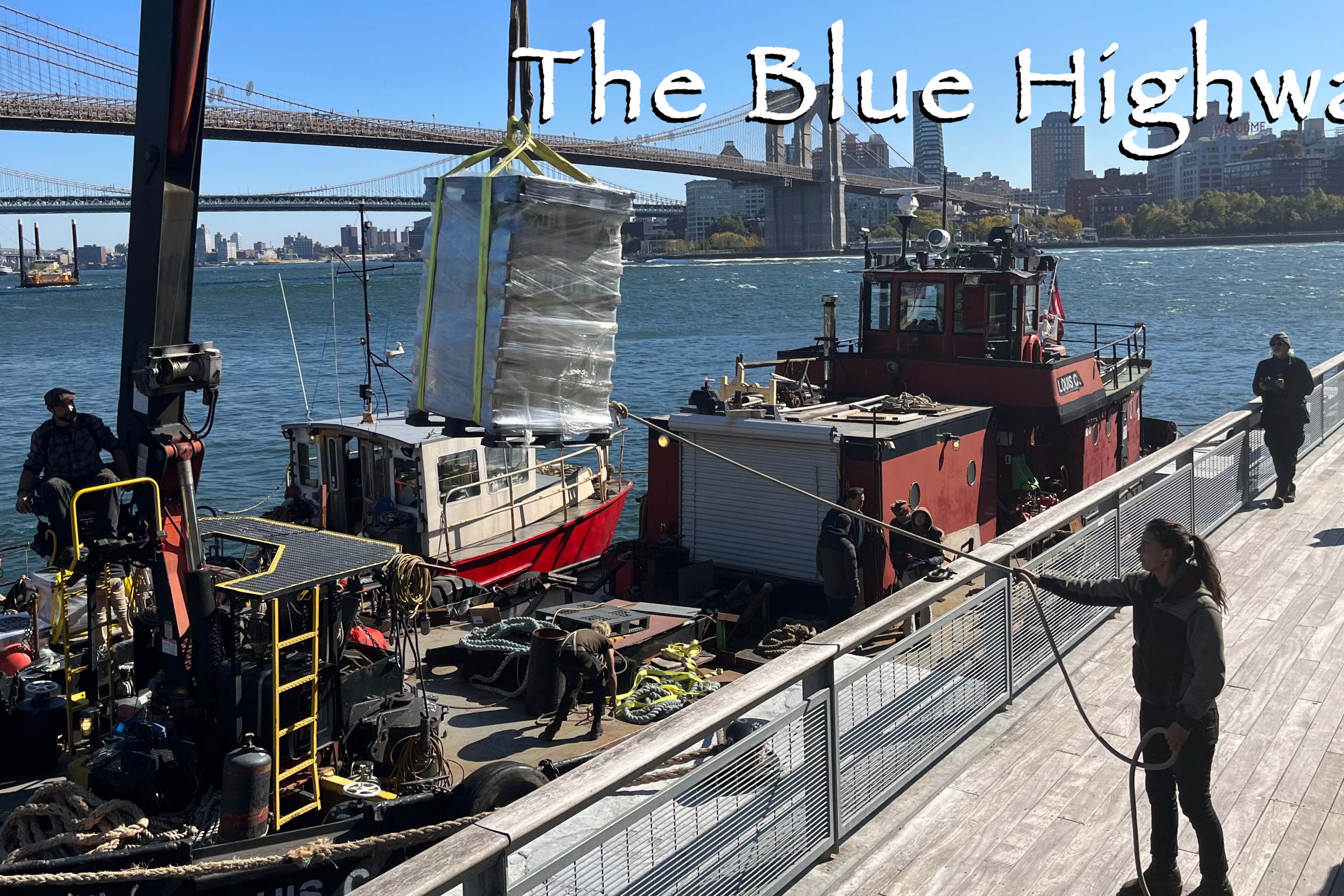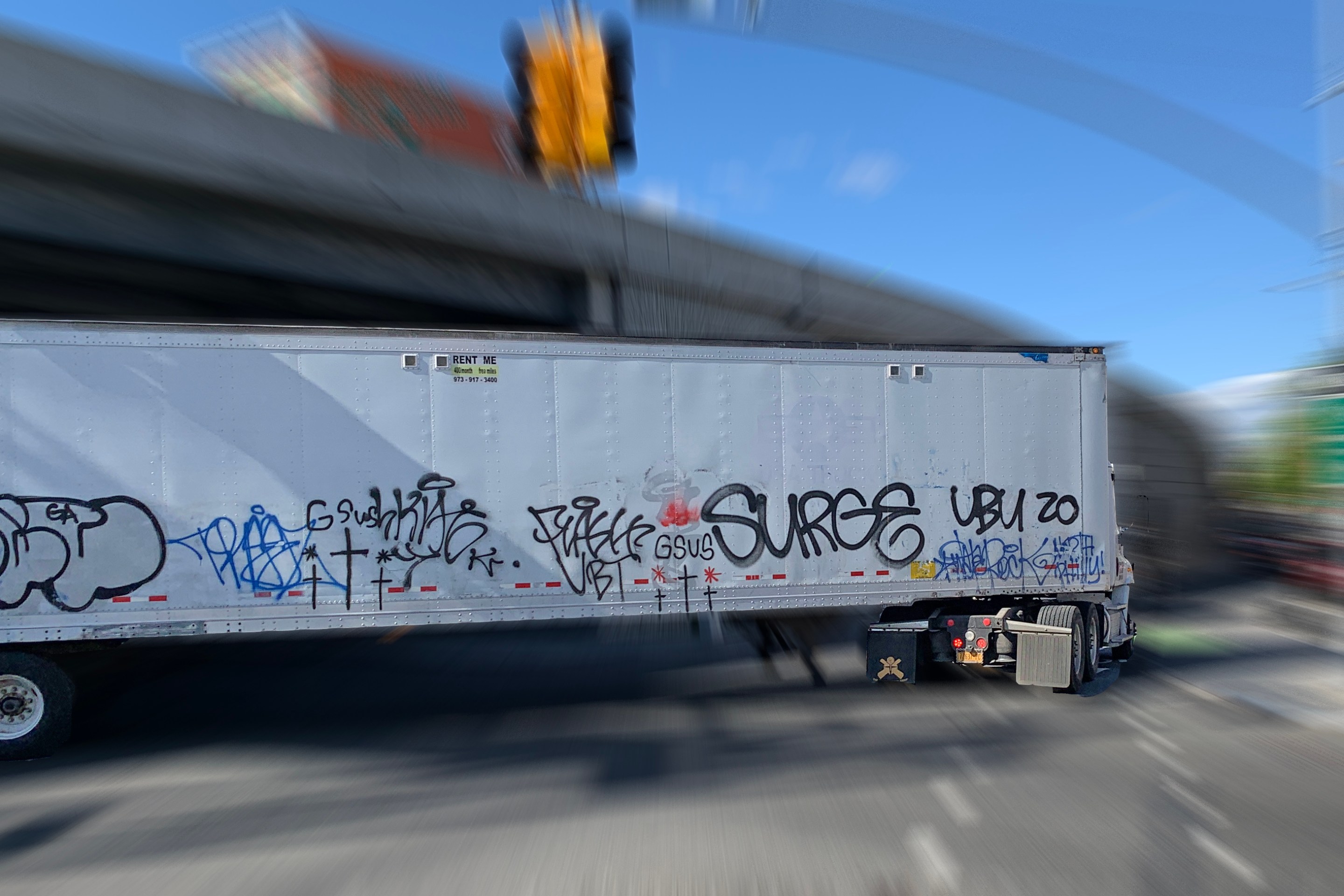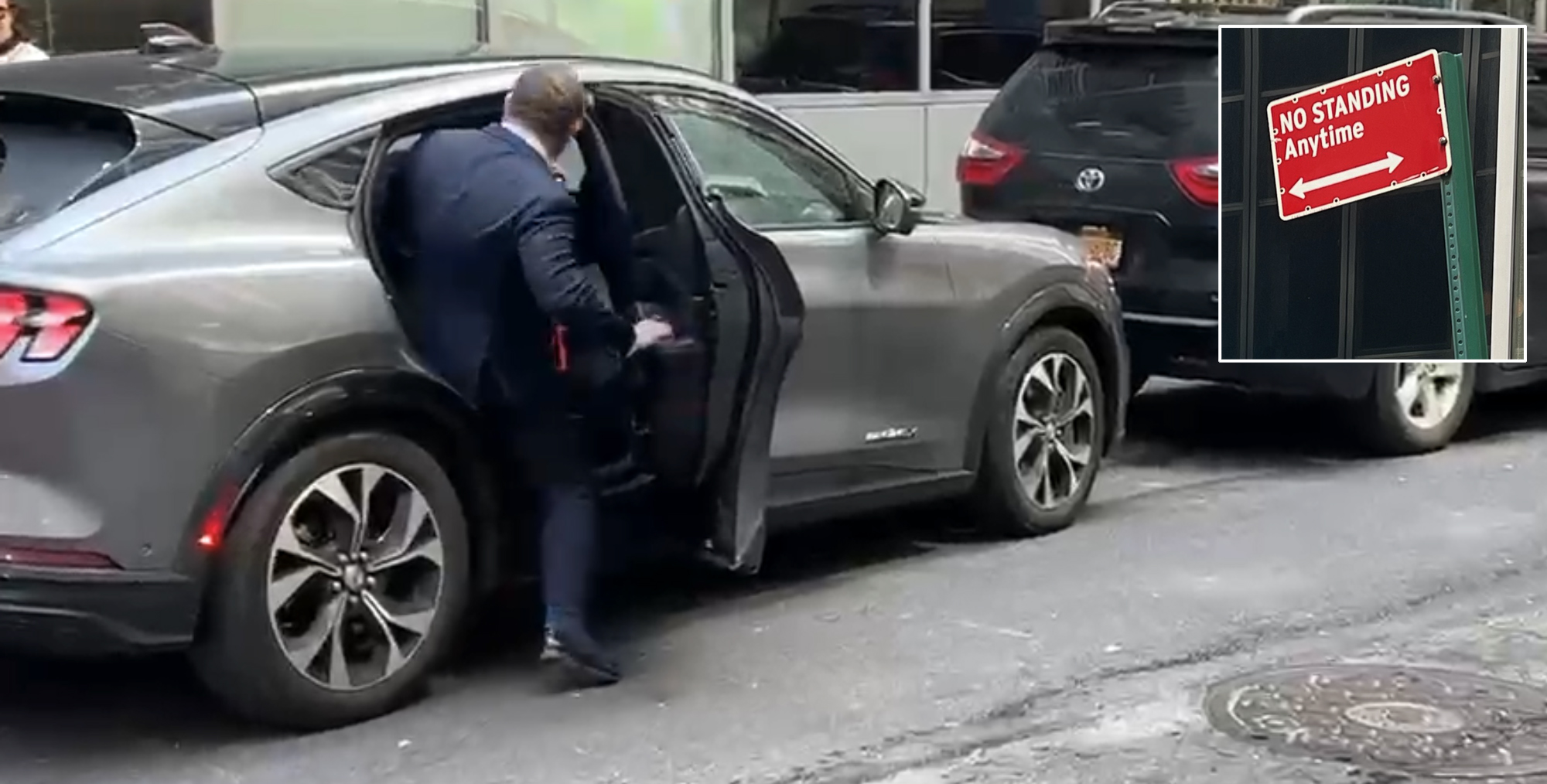When Killing With a Car Is Murder: Q&A With Nassau ADA Maureen McCormick
11:09 AM EST on December 6, 2013
Last month, the Court of Appeals -- New York's highest court -- upheld the murder convictions of impaired drivers who killed people in three crashes in Nassau County and Staten Island.
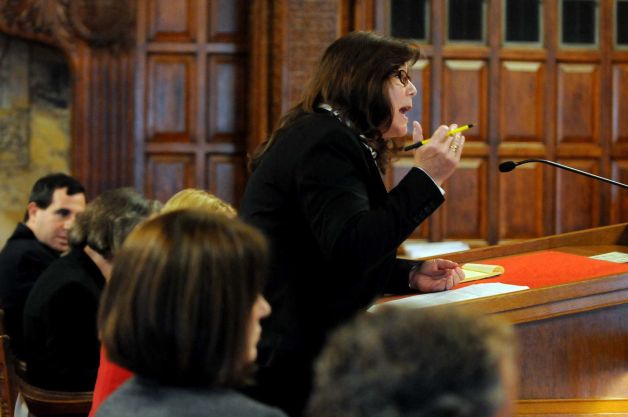
Martin Heidgen was driving in the wrong direction on the Meadowbrook Parkway when he slammed a pickup truck head-on into a limousine, killing driver Stanley Rabinowitz and 7-year-old Katie Flynn, whose family had just attended a wedding. Franklin McPherson drove against traffic on the Southern State Parkway before colliding with an SUV driven by Leslie Burgess, who was killed. Taliyah Taylor was high on Ecstasy and marijuana when she sped down Forest Avenue in Staten Island, striking pedestrian Larry Simon.
All three were convicted of murder, and all appealed their convictions on the grounds that they were too impaired to comprehend what they were doing. The court rejected that argument in a 5-2 decision, agreeing with prosecutors that the defendants exhibited a "depraved indifference to human life."
“Although intoxicated driving cases that present circumstances evincing a depraved indifference to human life are likely to be few and far between," wrote Chief Judge Jonathan Lippman, "we find that the evidence in each of these unusually egregious cases was legally sufficient to support the convictions.”
Said Nassau County District Attorney Kathleen Rice, whose record on drunk driving cases is recognized nationally: "There are times when this crime is murder, and we have to be willing to call it that when we know it will save lives. Hopefully this ruling will give other prosecutors the legal confidence to push for murder convictions for the worst of the worst drunk drivers."
Nassau vehicular crimes chief Maureen McCormick prosecuted Heidgen and McPherson, and argued their cases before the Court of Appeals. Streetsblog asked McCormick via email about the significance of the court's decision.
It appears the Heidgen, McPherson and Taylor rulings were combined, correct? If so, how did this come to be?
The Court of Appeals combined the cases for argument and decision because they each dealt with impaired/intoxicated driving and the application of depraved indifference. The court did not have to reach the same conclusion for each case just because it combined them for argument. They could have distinguished the cases in the decision if they believed they should not all be upheld. In this case they were all upheld.
As a prosecutor, what elevates a DWI fatality case from manslaughter to murder? Do you expect to see more murder prosecutions against drunk drivers, rather than manslaughter?
Depraved indifference cases are intended to be rare under the law. Note the language used to instruct the jury when it is considering a depraved indifference charge:
“Depraved indifference to human life” refers to a person’s state of mind in recklessly engaging in conduct which creates a grave risk of death. A person has a depraved indifference to human life when that person has an utter disregard for the value of human life — a willingness to act, not because he or she means to cause grievous harm [to the person who is killed], but because he or she simply does not care whether or not grievous harm will result. In other words, a person who is depravedly indifferent is not just willing to take a grossly unreasonable risk to human life — that person does not care how the risk turns out. Depraved indifference to human life reflects a wicked, evil or inhuman state of mind, as manifested by brutal, heinous and despicable acts. It is evinced by conduct that is wanton, deficient in a moral sense of concern, devoid of regard for the life or lives of others, and so blameworthy as to justify the same criminal liability that the law imposes on a person who intentionally kills.
“Evil, wicked, and wanton,” etc., is a tough standard to meet under any circumstance. In the case of drunk driving crimes, only the most egregious fact patterns will support a depraved murder charge. Generally continued, outrageously dangerous behavior -- that would cause the average person to say to himself, "Someone's going to die" -- is the type of case that would support the charge.
In the Taliyah Taylor case the defendant made statements that indicated that she knew what she was doing when she drove maniacally and killed Larry Simon. In Heidgen and McPherson the court found that a reasonable jury could have concluded the defendants had depraved mindsets from the distance travelled by the wrong way drivers (while maintaining their lanes and their speeds), the multiple indications they were driving the wrong way and their failure to slow or respond.
The court’s decision may allow prosecutors who were otherwise hesitant to bring depraved charges (because the meaning of depraved was so unclear) to appropriately charge depraved when they have terribly egregious facts. Otherwise I do not expect to see more depraved murder cases versus manslaughter cases because the facts of most cases will not sustain this high threshold.
It is nonetheless essential that the depraved murder charge is available for those cases that warrant it. The decision provides that availability. We have seen many prosecutions for aggravated vehicular homicide (a class B felony) which mandates upstate prison time for terrible cases that fall short of the depraved murder standard. In 2007 DA Kathleen Rice proposed this law to fill the hole between second degree manslaughter and first degree vehicular manslaughter (class C felonies) and depraved indifference murder (a class A felony). The statute was not proposed because depraved indifference murder is inappropriate for any DWI homicide, as claimed by one of the dissents. I was part of the process of passing that legislation. Its purpose has repeatedly been misstated by those who wish to preclude DWI homicides from depraved indifference charges. Aggravated vehicular homicide should be classified as a violent felony offense but in all other respects it is working to fill the gap.
Drunk drivers charged with manslaughter often escape serious penalty in New York State (Robert Core, as one example). With this ruling, do you believe the court has given prosecutors more latitude to pursue manslaughter and homicide charges?
The case against Robert Core was tried and decided by a judge without a jury at the defendant’s request. (The decision to waive a jury is strictly up to the defendant.) The judge acquitted the defendant of the manslaughter charge. Therefore the penalty was limited to the misdemeanor DWI. The possibility always exists that a judge or jury could disagree with the charges and acquit regardless of what the charges were.
There are many manslaughter cases where convictions are obtained. The range of sentencing for those cases often seems inadequate, however. The judge can sentence a reckless manslaughter defendant to anything from no jail (for instance, probation) to five to 15 years in prison. Second degree manslaughter should also be designated a violent felony offense to elevate the minimum sentences. Judges have slowly increased manslaughter sentences during my 27 years as a prosecutor but it remains crucial that the community pays attention to the courts and to what their elected judges are doing.
Had the court ruled in favor of the defendants, how might that have affected prior convictions and future DWI prosecutions? Weren’t the defendants basically arguing that extreme impairment absolved them of responsibility for “depraved indifference to human life”?
Prior-conviction depraved murders were already being challenged after the court changed depraved indifference to a “subjective mental state” in 2006. A decision striking down depravity in these three cases may have been used to launch new challenges against vehicular cases. The defendants were arguing that since they were highly intoxicated or high on drugs, they were not in their right minds when they were driving so therefore they could not be willfully “evil, wicked, wanton,” or depraved. Basically their premise is that in order to be depraved you have to be sober. The toxicology testimony in both Heidgen and McPherson indicated that an intoxicated person does not lose free will and is not “blinded” by their alcohol use. The toxicologist indicated that alcohol reduces inhibitions and could actually embolden the drivers to drive maniacally. At the end of the day the court appropriately held that it was up to the jury to decide. This decision clarifies that being intoxicated or impaired by drugs neither automatically makes you depraved nor automatically excuses depravity.
Again, had the court overturned the convictions, might the chilling effect have extended to potential cases involving sober drivers in fatal crashes?
Unfortunately the case of People v. Prindle [PDF] has already had a “chilling effect” on sober driver depraved cases. If the court’s decision in Heidgen, McPherson, and Taylor also overturned their three cases, it would have effectively closed the door on any depraved murder prosecutions involving the operation of a vehicle.
Does this ruling have an impact beyond cases in which a motorist kills someone while under the influence? Could the court’s decision make it “easier,” for lack of a better word, to make cases against sober reckless drivers who kill?
Prindle was not overruled by these decisions so problems will continue in sober, egregious driving cases. This depraved ruling has the potential to be cited in any type of depraved indifference case, given that a case by case analysis of the facts has to be done and, essentially, a “totality of the circumstances” approach taken.
The court did not directly address the issue of whether intoxication can or should be allowed to be argued to mitigate depravity. (It can not be used to mitigate recklessness.) The court has implied that intoxication is one of the factors a jury can consider. But it is up to the jury.
Read More:
Stay in touch
Sign up for our free newsletter
More from Streetsblog New York City
Report: Road Violence Hits Record in First Quarter of 2024
Sixty people died in the first three months of the year, 50 percent more than the first quarter of 2018, which was the safest opening three months of any Vision Zero year.
Street Sweepers Could Nab Illegal Parking Under State Bill
Smile for the street-sweeper!
Thursday’s Headlines: The Way of Water Edition
The "Blue Highways" campaign wants the mayor to convert a downtown heliport into a freight delivery hub. Plus more news.
Gotcha-Heimer! Anti-Congestion Pricing Jersey Rep. With a City Speeding Ticket Drove to Manhattan on Wednesday
New Jersey's most vociferous opponent of congestion pricing parked illegally and once got a speeding ticket.
